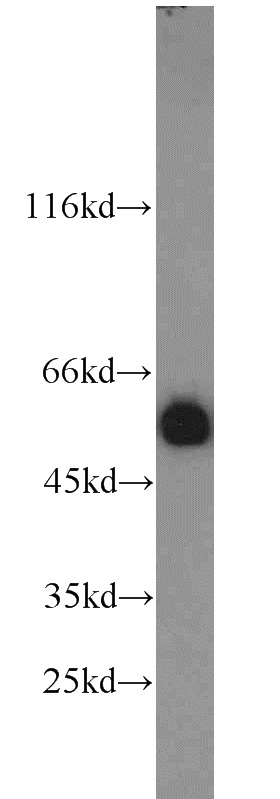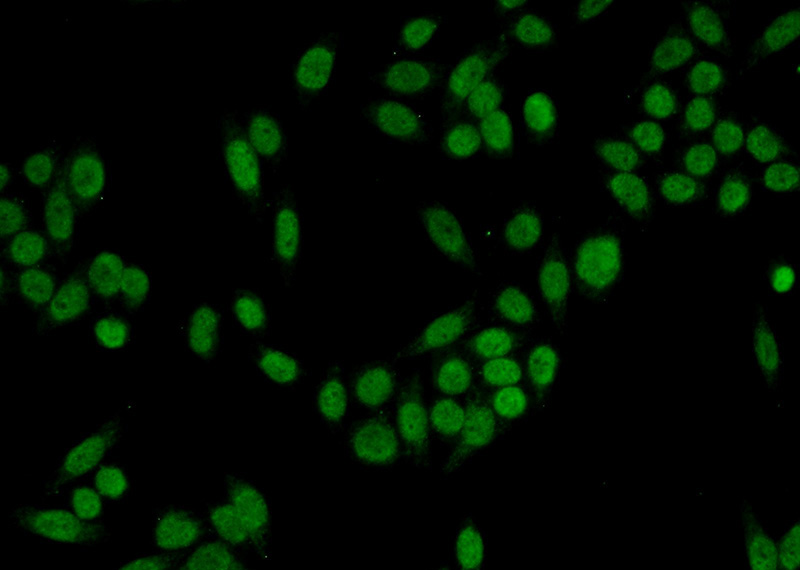-
Product Name
DDB2 antibody
- Documents
-
Description
DDB2 Rabbit Polyclonal antibody. Positive WB detected in HeLa cells, A431 cells. Positive IF detected in HeLa cells. Observed molecular weight by Western-blot: 55-60 kDa
-
Tested applications
ELISA, WB, IF
-
Species reactivity
Human,Mouse,Rat; other species not tested.
-
Alternative names
DDB p48 subunit antibody; DDB2 antibody; DDBB antibody; DNA damage binding protein 2 antibody; FLJ34321 antibody; UV DDB 2 antibody; UV DDB2 antibody
-
Isotype
Rabbit IgG
-
Preparation
This antibody was obtained by immunization of DDB2 recombinant protein (Accession Number: NM_001399874). Purification method: Antigen affinity purified.
-
Clonality
Polyclonal
-
Formulation
PBS with 0.1% sodium azide and 50% glycerol pH 7.3.
-
Storage instructions
Store at -20℃. DO NOT ALIQUOT
-
Applications
Recommended Dilution:
WB: 1:500-1:5000
IF: 1:20-1:200
-
Validations

HeLa cells were subjected to SDS PAGE followed by western blot with Catalog No:109771(DDB2 antibody) at dilution of 1:1000

Immunofluorescent analysis of HeLa cells using Catalog No:109771(DDB2 Antibody) at dilution of 1:50 and Alexa Fluor 488-congugated AffiniPure Goat Anti-Rabbit IgG(H+L)
-
Background
DDB2, also named as DNA damage-binding protein 2 or UV-damaged DNA-binding protein 2, is a 427 amino acid protein, which contains seven WD repeats and belongs to the WD repeat DDB2/WDR76 family. DDB2 is ubiquitously expressed, with highest levels in corneal endothelium and lowest levels in brain. DDB2 localizes in the nucleus and is required for DNA repair. DDB2 regulates negatively the constitutive expression of the SOD2 gene in breast cancer cells and exerts, at least in part, a control of breast cacner cell growth. DDB2 can play a role as oncogene and may become a promising candidate as a predictive marker in breast cancer.
-
References
- Ahmed FE, Wiley JE, Weidner DA, Bonnerup C, Mota H. Surface plasmon resonance (SPR) spectrometry as a tool to analyze nucleic acid-protein interactions in crude cellular extracts. Cancer genomics & proteomics. 7(6):303-9. 2010.
Related Products / Services
Please note: All products are "FOR RESEARCH USE ONLY AND ARE NOT INTENDED FOR DIAGNOSTIC OR THERAPEUTIC USE"
